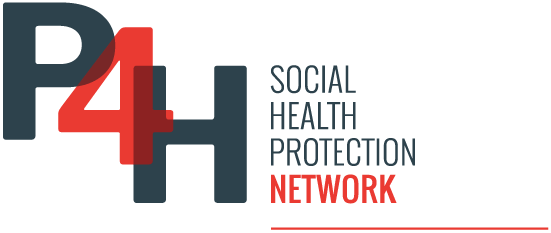The number of documents available on the P4H Network’s digital platform reflects the network’s scope of work. The majority of documents are primary source materials created by country nationals or resources produced by organizations working in social health protection (SHP) and/or health financing (HF).
Law N°09-030/ of July 27, 2009 Establishing the Medical Assistance Regime (Mali)
This law of the Republic of Mali creates the Medical Assistance Scheme (RAMED). This scheme covers health care for the indigent in public health establishments.
The State of the Country – Health 2025 (Honduras)
In this document on the state of health in Honduras for 2025, the author, Liliam Rivera of the Association for a More Just Society, exposes the situation of the health system in the country. Among others, she highlights the government's investment in infrastructure,...
Health insurance coverage in Mexico: progress, inequalities and remaining challenges towards UHC2030
Mexico’s path toward universal health coverage (UHC) reflects both remarkable progress and persistent fragility. In their BMC Health Research Policy and Systems study, “Health insurance coverage in Mexico: progress, inequalities and remaining challenges towards...
WHO Malawi Country Office Comprehensive Annual Report Year 2024
The 2024 WHO Malawi Country Office Report shows major progress toward Universal Health Coverage and stronger health systems, achieved through alignment with national strategies and partner collaboration. Nine district-level reforms introduced integrated,...
Community Action to Strengthen Health Equity in the Spanish Basque Country
Community action in the Basque Country is vibrant but fragmented, lacking a unified structure to coordinate efforts across regions and sectors. Limited public funding, staffing, and inconsistent evaluation methods further constrain its impact. The report calls for a...
Stay the Course – 2025 Health Sector Presentation in Jamaica
This document from the Jamaican Ministry of Health and Wellness reports on the honourable Minister Dr Chris Tufton’s sector of the Health Sector in 2025. Specifics include health spending numbers as well as reference to increased benefit coverage from the National...
Expanding budget space to improve health outcomes in low- and middle-income countries: what role for tax expenditures?
The article Expanding budget space to improve health outcomes in low- and middle-income countries: what role for tax expenditures?, published in Health Policy and Planning on 22 October 2025, provides the first cross-country analysis of how tax expenditures influence...
Malians call for universal health care
Mali has made progress in health outcomes such as reduced infant, under-5, and maternal mortality and increased life expectancy, supported by reforms like the 2018 universal health insurance plan. However, access to quality care remains limited due to funding...
Progress and inequalities in financial risk protection toward universal health coverage: insights from Vietnam
The study analyzes Vietnam’s progress on financial risk protection (FRP) as part of Universal Health Coverage using data from six national surveys covering 2010–2020. It evaluates multiple FRP indicators, including catastrophic, impoverishing, and financial hardship...
Assessing the financial burden on Irish patients and their households attending hospital clinics
This pilot study examined the private out-of-pocket costs incurred by patients attending hospital outpatient consultations in Ireland. Data from 42 patients showed a median cost of €131 per visit and an average annual expense of €559, with additional burdens such as...
Economic Drivers of Public Health Expenditure in Kenya
The study examined how macroeconomic factors such as GDP per capita, corruption, unemployment, fiscal deficit, and tax revenue influence public health expenditure in Kenya from 1990 to 2023. Using the ARDL model, results showed that corruption, GDP per capita, tax...
Health economics and vaccine financing in the eastern Mediterranean region: A needs assessment
The article “Health economics and vaccine financing in the Eastern Mediterranean Region: A needs assessment,” published in Vaccine by Elsevier, provides a comprehensive analysis of how health economics and financing are being applied in immunization programmes across...
National Health Accounts: Report 2016-2017, 2017-2018, 2019-2019 (Haiti)
In August 2022, Haiti's Ministry of Public Health and Population published the National Health Accounts report for biannual periods between 2016 and 2019.
Law No. 87-01 which creates the Dominican Social Security System.
This law of the Dominican Republic, enacted in May 2001, establishes the foundations of its social security system, including health. It establishes a universal and mandatory system, articulating public and private health institutions dedicated to social security and...
Can Indonesia achieve universal health coverage? Organisational and financing challenges in implementing the national health insurance system
Indonesia’s Jaminan Kesehatan Nasional (JKN) is one of the world’s largest single-payer health insurance systems, designed to provide equitable and affordable healthcare to over 280 million people. Since its inception in 2014, JKN has reached near-universal enrolment,...
